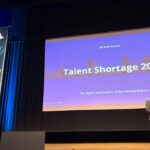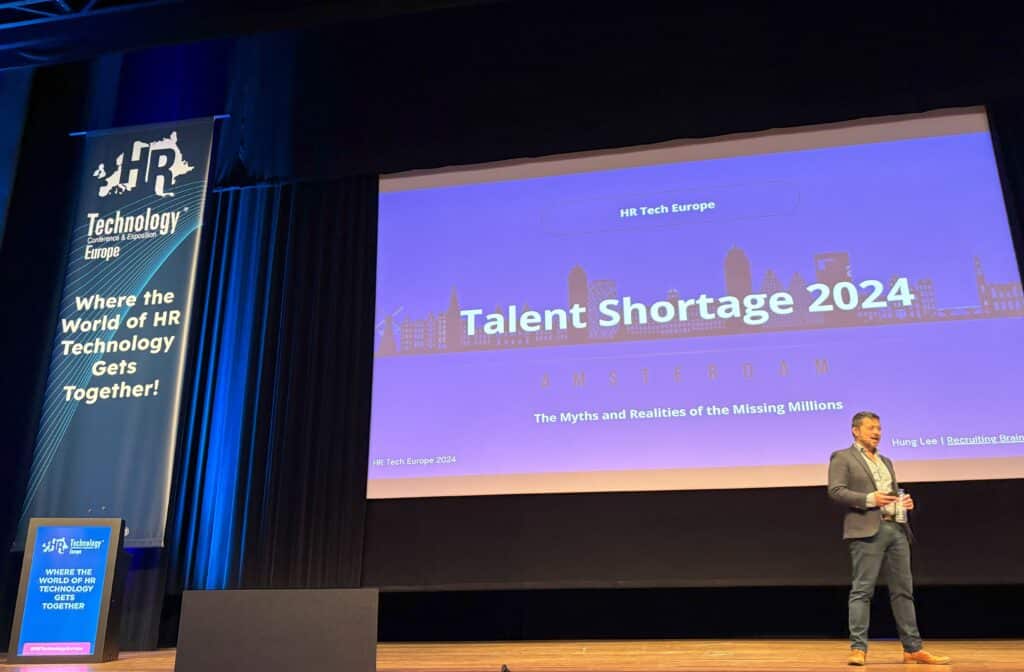The latest learning news and research compiled by TJ’s editorial team
Upskilling, reskilling and management the focus on Learning Now TV
On Learning Now TV this month, David James from 360 Learning has a report on the state of upskilling and reskilling. Martin Couzins joins Nigel Paine with a report from CMI into the state of management in the UK.
Also on the show, Helen Marshall talks to Nigel about why every organisation needs a CLO. Toby Kheng starts a 6-part series with episode one on the four key areas of the employee experience, and Rob Clarke has the round-up from Learning News.
The next Learning Now TV live-streamed programme is on Thursday Nov 30 at 10 am UK time. And the full programme will be available on catch up from the LNTV website three days later.
Read more.
Disabilities in early life earn less in STEM roles
Doctorate recipients working in Science, Technology, Engineering and Mathematics (STEM) with disabilities experienced early in life earned less per year than non-disabled workers.
Researchers observed an underrepresentation of academics with disabilities in higher faculty ranks.
Read more.
Menstrual health support in the workplace needs improvement
The latest findings from the CIPD’s report Menstruation and support at work, which surveyed more than 2,000 women, found that more than two thirds (69%) of women have a negative experience at work because of their menstruation symptoms.
In response, the CIPD, the professional body for HR and people development, is calling on organisations to create awareness, tackle the stigma associated with menstruation and train managers to be confident, comfortable and inclusive when talking to employees about menstrual health.
When asked why they didn’t feel able to say why they were not able to go into work, the report finds that 45% of women felt that the problem would be trivialized and 43% felt embarrassed. According to the survey, just one in ten (12%) women say that their organisation provides support for menstruation and menstrual health conditions.
Read more.
Consider the precarious nature of vulnerable employees
Millions of Brits in insecure work are living in fear that they will lose their jobs and that an unexpected bill could put them in the red, according to a new in-depth analysis from the Work Foundation at Lancaster University and the Chartered Management Institute (CMI).
The new research, which polled 3,000 workers in insecure work and 1,000 UK managers, found that approximately one in three workers in insecure work (30%) expect to lose their jobs in the next 12 months, and almost (49%) couldn’t personally pay an unexpected bill of £300 if it was due within the next seven days.
It comes just as firms across the UK rush to recruit seasonal workers ahead of the holiday season, potentially swelling the numbers of working people affected by the realities of precarious, insecure work.
Read more.
Brains don’t rewire to compensate for loss
Contrary to the commonly-held view, the brain does not have the ability to rewire itself to compensate for the loss of sight, an amputation or stroke, for example, say scientists.
The researchers argue that the notion that the brain, in response to injury or deficit, can reorganise itself and repurpose particular regions for new functions, is fundamentally flawed. Instead, they argue that what is occurring is merely the brain being trained to utilize already existing, but latent, abilities.
Read more.
Record-breaking attendance to hybrid AI conference
Speexx, the industry leader for digital people development, coaching, and language training, reported the highest ever number of attendees and registrations for its flagship L&D and HR thought leadership event, Speexx Exchange. This year, the hybrid conference garnered over 1,000 registrations with 200 in-person attendees.
“This year’s Speexx Exchange was the biggest ever, with the highest number of registrations and attendees to date. The feedback has been overwhelmingly positive, and we all came away with new discussion points to bring back to our teams and organizations. In a world where mediocrity will be automated, it’s down to human curiosity to provide the “missing link.” It’s not AI that will replace humans, but rather humans utilizing AI that will replace those who fail to upskill, reskill, and teach AI to work for them,” said Armin Hopp, Founder of Speexx.
Read more.
Learn happily from your community
Learning communities have become a focal point of research due to their potential impact on learning outcomes, motivation, and communication.
A review of 35 relevant studies was conducted and findings indicated that learning communities possess the capacity to enhance communication, motivation, and learning outcomes, while simultaneously alleviating learner anxiety.
Read the research.
The post TJ Newsflash: 29 November first appeared on Training Journal.
The post TJ Newsflash: 29 November appeared first on Training Journal.




